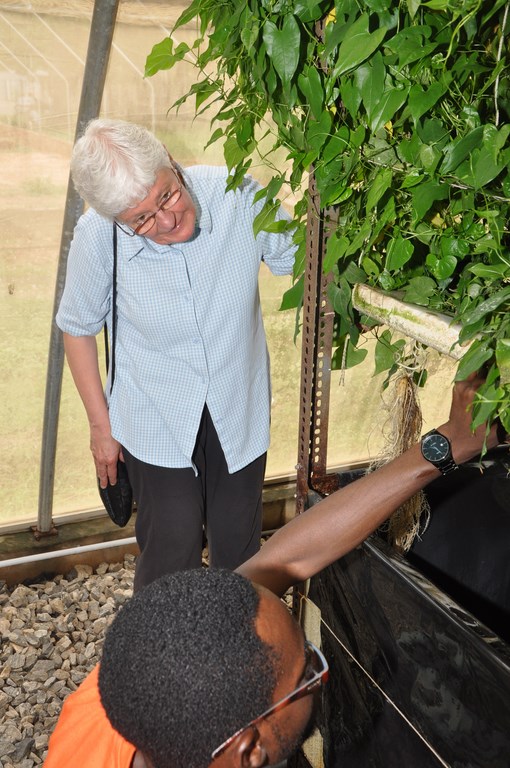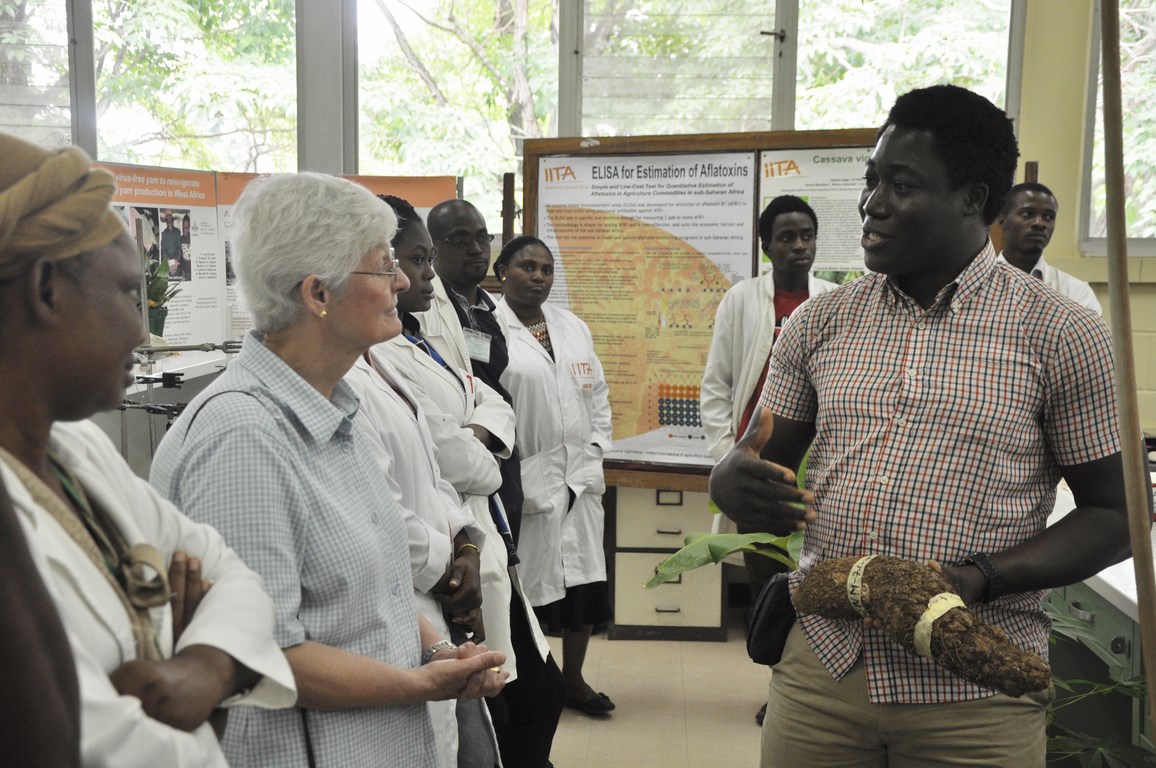External evaluators from the Independent Evaluation Arrangement (IEA) came to review and evaluate IITA’s contribution to the achievements of the CGIAR Research Program (CRP) on Roots, Tubers and Bananas (RTB) last week.

Samson Ogbole, YIIFSWA research supervisor, shows Jillian Lenne mini tubers growing in the aeroponics system.
Jillian Lenne, team leader of the IEA, stated, “The evaluation of the RTB program is one of 10 evaluations commissioned by CGIAR. The purpose is to provide guidance for developing proposals for the next phase.” The information gained will influence decision making by program management and its funders on issues such as extension, expansion, and structuring of the program.
With the global mandate on yam, IITA has made major strides in the development and advancement of the crop for income generation and food security. YIIFSWA, a flagship project on yam, was selected for an in-depth review of its outcomes, delivery, and impact.
YIIFSWA has made a significant breakthrough in the development of low-cost, effective mass propagation methods. With the establishment of aeroponics and the bioreactor for production of plantlets and mini tubers, the yam multiplication rate has increased a hundredfold. These technologies offer rapid, clean, and cost-effective mass methods of multiplying yam. The establishment of these technologies in the private sector and the NARS will effectively address the need for fast and wide distribution of high-quality improved varieties to meet the increasing demand for the crop.
YIIFSWA has also made significant strides in managing yam pests and diseases. Under the project, a cost-effective Multiplex PCR was developed to detect several viruses from one single test. The advantage is that it requires fewer tests of assay, therefore, it is less costly. The project is also working on developing and establishing a procedure called loop-mediated isothermal amplification (LAMP) for detecting viruses. Such an intervention will aid field inspectors with the health certification of plants and seed tubers.
Lenne had visited the aeroponics, bioreactor system, and virology labs. During an intermission she said, “Although yam is considered an orphan crop in the RTB program, one of the main highlights of the evaluation is the strides made from learning from previous work that had been done on other crops. It is a basic sort of wish of the CRPs to see cross-crop collaboration in the development of new technologies. I think that has come out nicely for yam.”
IITA’s RTB programs will be evaluated on their performance with a special focus on relevance, quality of science, effectiveness, impact and sustainability, governance, and management.




No Comments